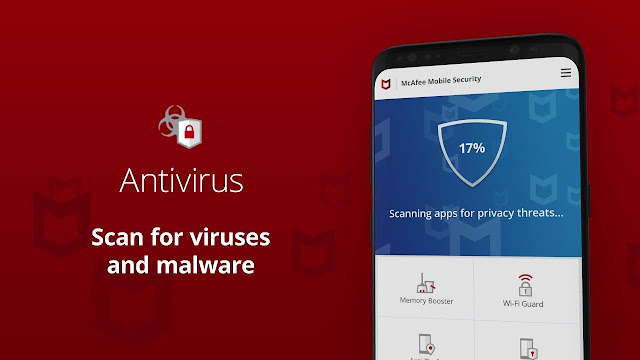The Truth About iOS Security: Do You Really Need Antivirus on Your iPhone?
🔒 The Truth About iOS Security: Do You Really Need Antivirus on Your iPhone? 🔒
With cyber threats on the rise, many iPhone users wonder: Do I need an antivirus for iOS? Unlike Windows and Android, iOS operates differently, making traditional antivirus software unnecessary. However, security and privacy risks still exist.
This guide explores iOS security, the best free and paid security apps, and whether investing in additional protection is worth it.
 |
iOS 18 makes iPhone more personal, capable, and intelligent than ever - Apple |
Why iPhones Don’t Need Traditional Antivirus Software
Apple has designed iOS with built-in security features that minimize malware risks:
App Store Restrictions: Every app is rigorously reviewed before being allowed on the App Store, reducing malware threats.
Sandboxing Technology: Apps are isolated from each other, preventing them from accessing system files or spreading malware.
Regular Security Updates: iOS receives frequent updates that patch vulnerabilities and enhance security.
No Direct File Access: Unlike Android or Windows, iOS restricts apps from making unauthorized system changes.
Due to these security measures, traditional antivirus software (which scans for malware) is not needed on iPhones. However, cybersecurity threats like phishing, data breaches, and identity theft still exist. This is where security apps come in.
Top 3 Free Security Apps for iOS
1. Avast Security & Privacy
✅ Wi-Fi security scanning
✅ Identity breach alerts
✅ Phishing protection
❌ No advanced features like VPN
Avast Security & Privacy provides essential protection by scanning networks for vulnerabilities and notifying you if your personal information is leaked online. However, it lacks a built-in VPN for anonymous browsing.
2. Bitdefender Mobile Security
✅ Real-time anti-phishing protection
✅ Secure browsing tools
✅ Minimal impact on device performance
❌ No identity theft monitoring in the free version
Bitdefender’s free iOS security app focuses on safe browsing by blocking fraudulent websites. However, premium features such as VPN and account security monitoring require an upgrade.
3. Kaspersky Security Cloud
✅ Cloud-based security and data leak alerts
✅ Password manager (basic version)
✅ Secure cloud storage
❌ Limited functionality in the free version
Kaspersky Security Cloud is great for monitoring account security, but the best features (such as VPN and advanced breach monitoring) are behind a paywall.
Top 3 Paid Security Apps for iOS
1. Norton 360 for Mobile ($30–$80 per year)
✅ Secure VPN with unlimited data
✅ Dark web monitoring for identity protection
✅ Web protection against phishing and malicious sites
✅ Wi-Fi security scanning
❌ Higher price compared to competitors
Norton 360 is one of the best security apps for iOS, offering comprehensive privacy and identity protection features, making it ideal for frequent travelers and online shoppers.
2. McAfee Mobile Security ($30–$80 per year)
✅ Anti-theft protection (locate, lock, and wipe your device remotely)
✅ Secure VPN and Wi-Fi protection
✅ Identity theft monitoring
❌ Can slow down older iPhones slightly
McAfee Mobile Security is an excellent option for users looking for anti-theft features, identity theft monitoring, and secure browsing.
3. Bitdefender Mobile Security ($20–$50 per year)
✅ AI-powered web protection against phishing sites
✅ Secure VPN included
✅ Data breach monitoring
❌ VPN usage is limited in lower-tier plans
Bitdefender Mobile Security provides strong phishing protection and includes a VPN, but some features require higher-tier subscriptions.
Comparing Free vs. Paid iOS Security Apps: Which One Is Right for You?
| Feature | Free Security Apps | Paid Security Apps |
|---|---|---|
| Malware Protection | Basic (phishing protection) | Advanced AI-powered protection |
| Wi-Fi Security | Scans for vulnerabilities | Scans and encrypts connections (VPN) |
| Phishing Protection | Blocks some malicious sites | Full AI-based anti-phishing defense |
| Identity Theft Monitoring | Limited or none | Dark web monitoring, breach alerts |
| VPN (Privacy Protection) | Often missing | Unlimited secure browsing |
| Anti-Theft Features | Limited | Remote locate, lock, and wipe |
| Customer Support | Limited or community-based | 24/7 premium support |
Is a Paid Security App Worth It for iPhone Users?
A free security app can provide basic protection against phishing and data breaches, but if you:
Use public Wi-Fi networks frequently → A VPN is necessary for protection.
Store sensitive data on your iPhone → Dark web monitoring helps protect your identity.
Shop or bank online → AI-based phishing protection reduces scam risks.
Want anti-theft features → A paid app allows remote tracking, locking, and wiping of your device.
For users with sensitive data, frequent travelers, or business professionals, a paid iOS security app is a smart investment.
Conclusion
While iPhones don’t need traditional antivirus software, cyber threats like phishing, identity theft, and unsecured Wi-Fi risks still exist. Apple’s built-in security is strong, but for extra protection, a paid security app with VPN, phishing protection, and identity monitoring is recommended.
💡 Your Turn: Do you use a security app on your iPhone? Let us know in the comments!










Comments
Post a Comment